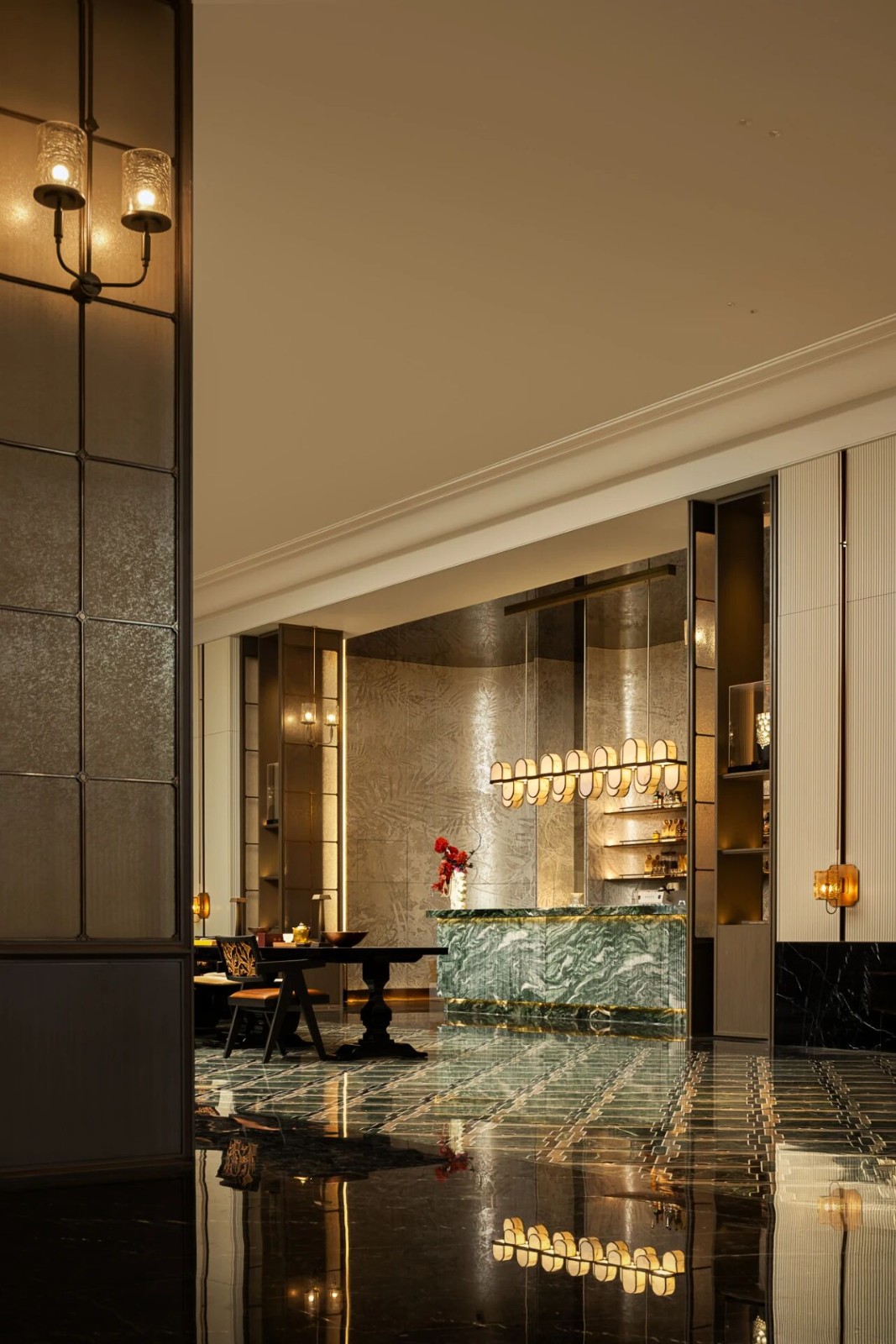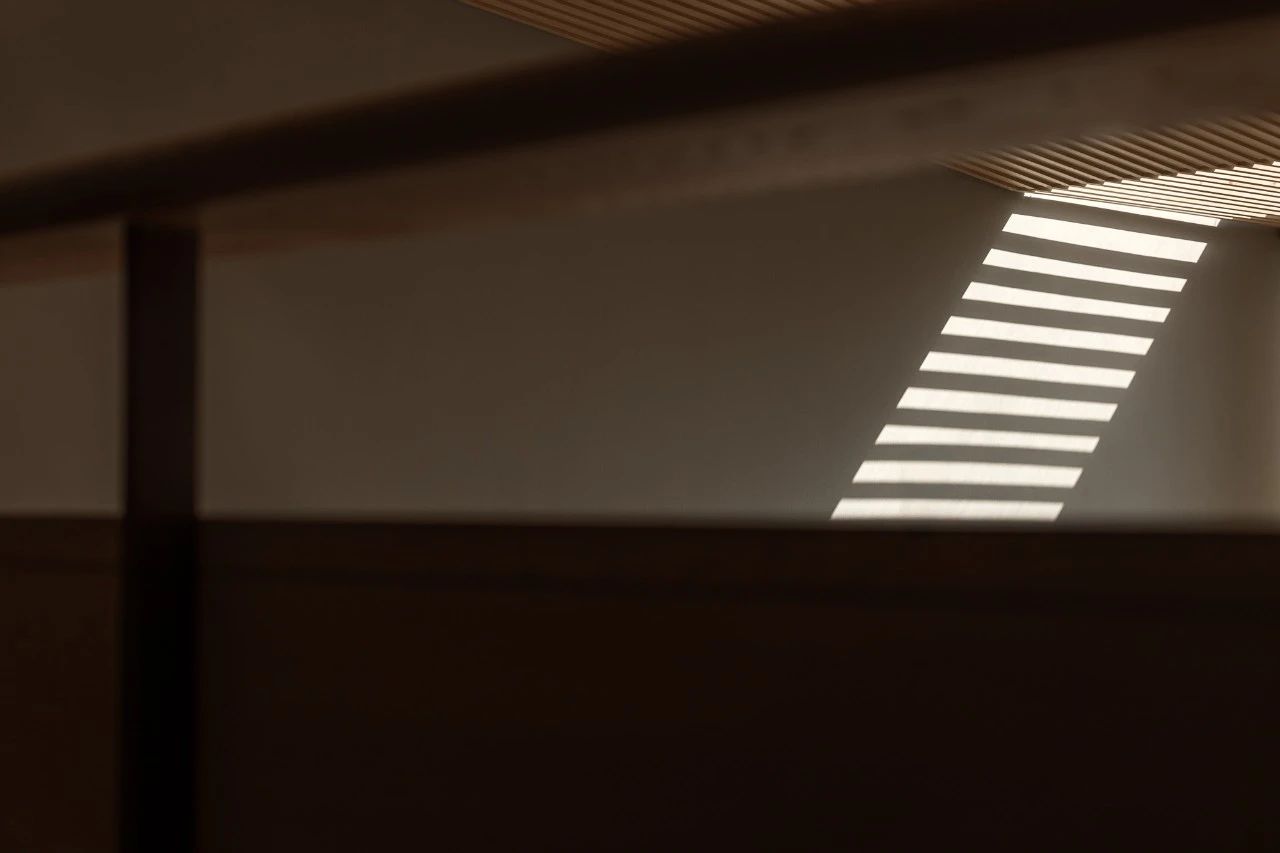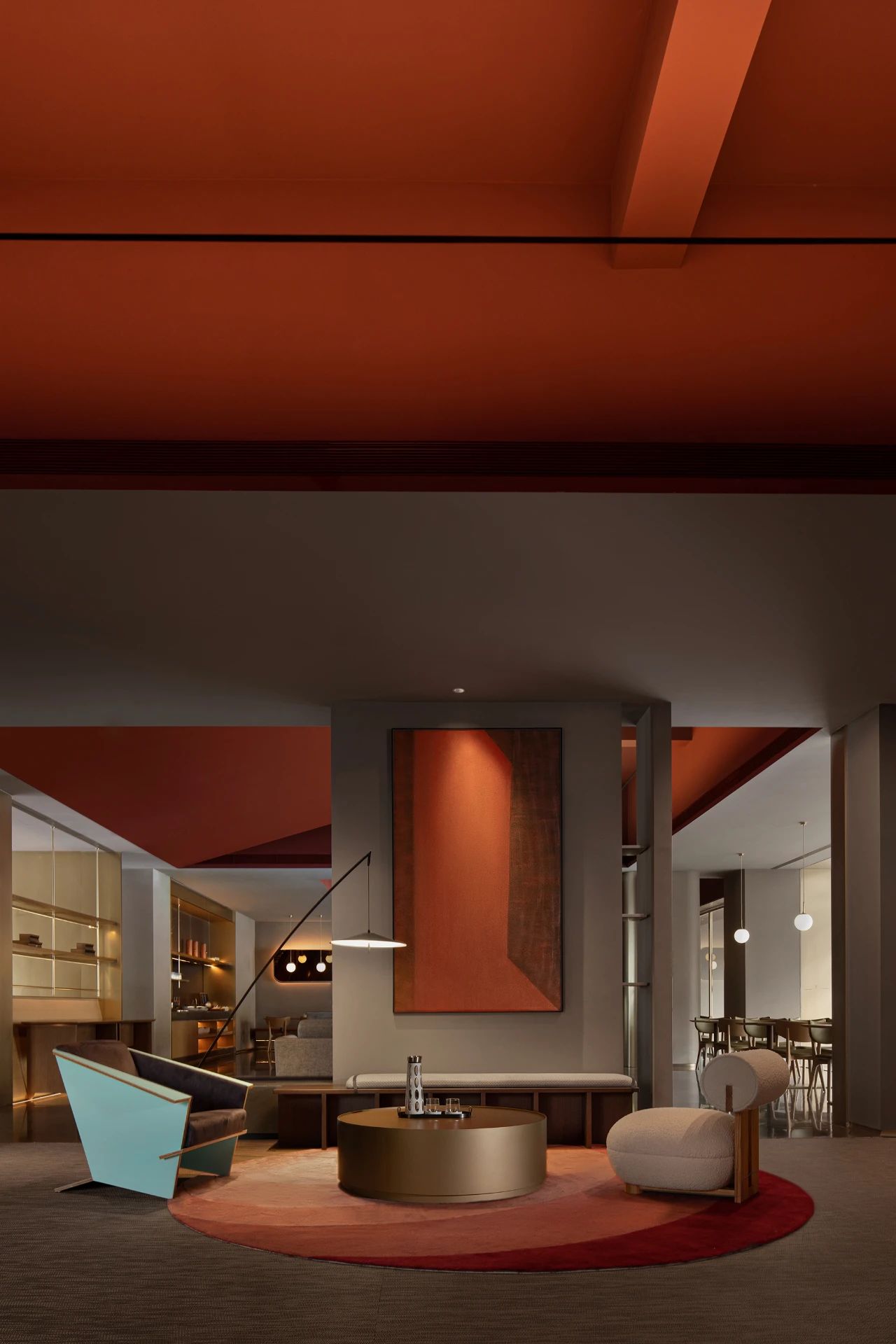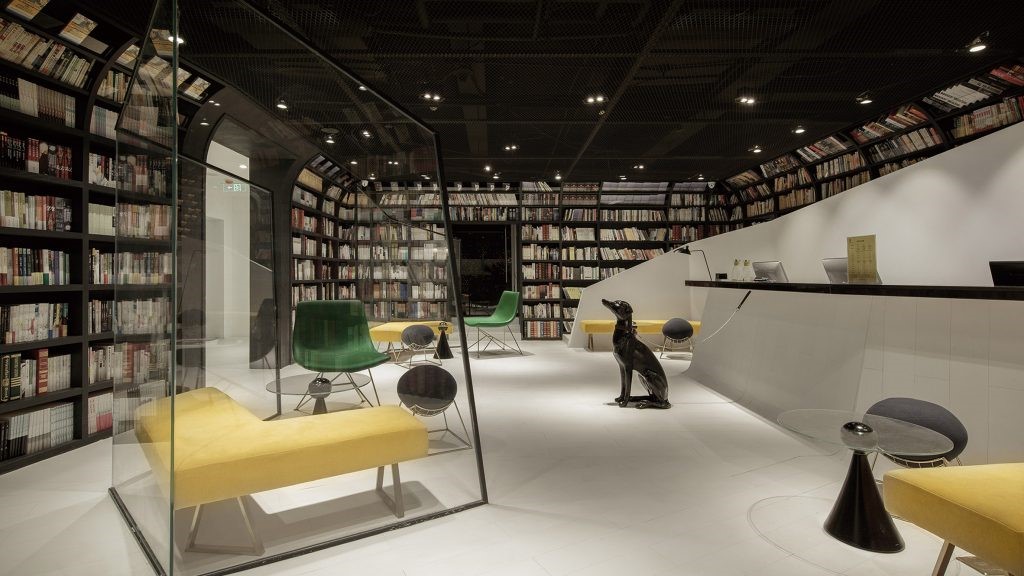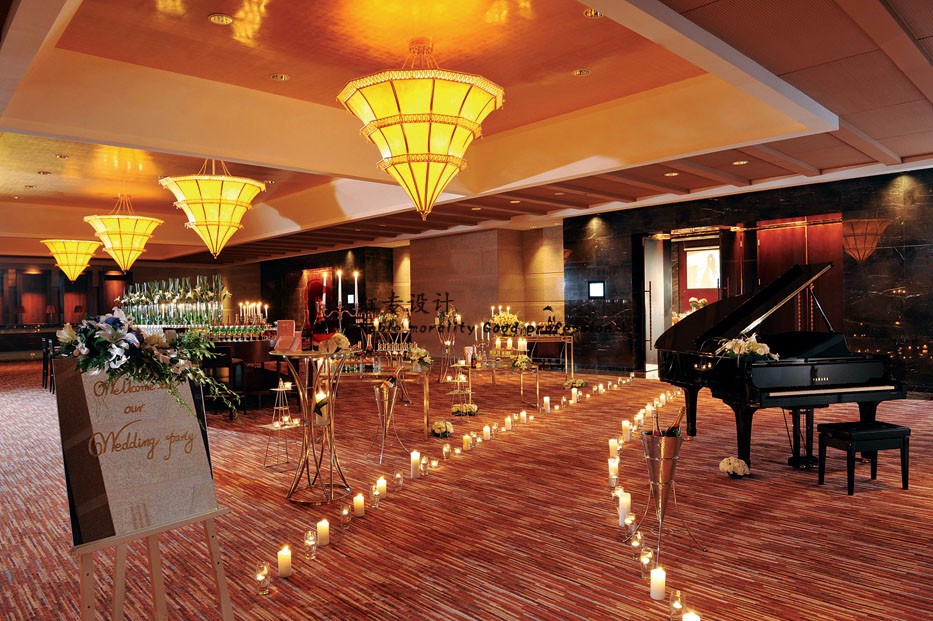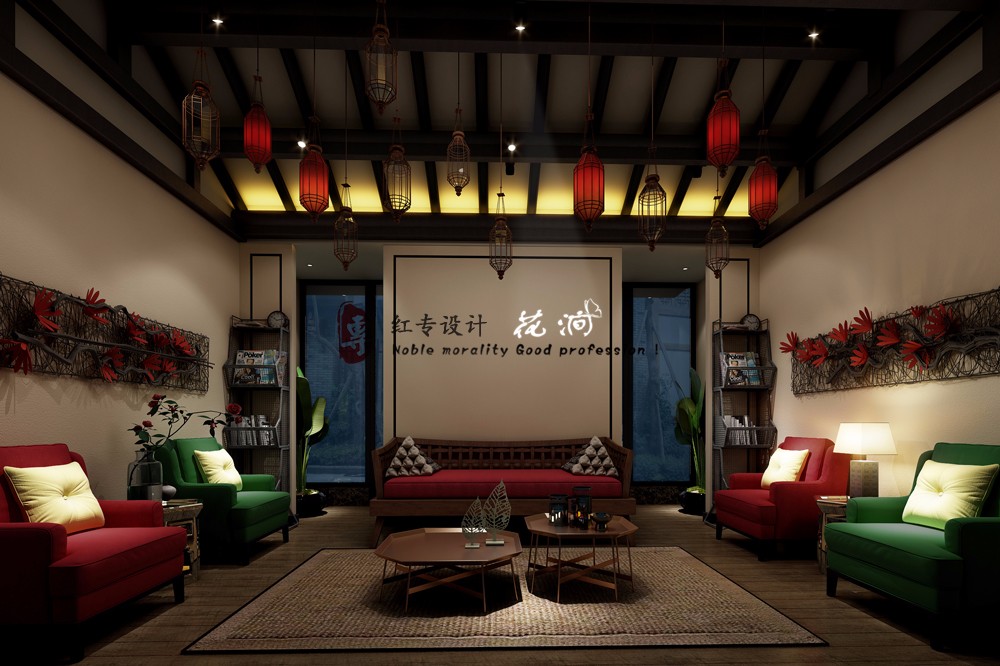WJ STUDIO 万境设计丨城市橱窗——安辰酒店 首
2024-03-28 09:35
The old and the new of Ansan Hotel is the alternation
of two generations and their thinking concept.
It reflects the change of the city.
but nothing will disappear.
It just reappears in another carrier or form.
Symbolic Visual recognition
在不同的历史时期和地域中,建筑物的形式和功能都反映了当时社会的文化特征和价值观。当城市开始寻找自己的定位,并不断强化自身的特点、打造城市品牌,城市中的建筑、景观只有顺应这个趋势,才能形成足够强烈的记忆点。从设计的角度来说,统一而可重复的设计元素和空间特征可以共同构成一种符号化的语言。建筑物不仅仅是一个实物,更是一种商业符号。
In different historical periods and regions, the forms and functions of buildings reflect the cultural characteristics and values of the society at that time. When cities start to find their positioning and continue to strengthen their features and build city brands, the buildings and landscapes in cities can only form strong enough memory points if they follow this trend. From the design perspective, unified and repeatable design elements and spatial features can develop a symbolic language together. A building is not only a physical object but also a cultural symbol.
万境设计团队带着这种符号语言的思考,投入到绍兴安辰酒店的设计之中。我们提出了一个以符号化、视觉识别为理念的改造方案,希望除了对酒店内部的改造,通过酒店外部的立面、景观的改造,让建筑物的外观形式、材料和色彩传达柯桥的地域特征和城市文化。
With this symbolic language in mind, WJ STUDIO put into the design of Shaoxing Ansan Hotel. We proposed a renovation plan with the concept of symbolization, hoping that in addition to the renovation of the hotels interior, the exterior facade and landscape of the hotel will be renovated so that the exterior form, material and colour of the building will convey the regional characteristics and urban culture of Keqiao.
同时,我们将酒店的社交属性转化为设计手法,以酒店公共区域为依托,为酒店住客提供可以放松、交流的社交场所,并为线上平台更大范围内的人们提供社群空间。将符号化和社区化这两条设计目标提升到概念设计的层次,推动整个方案的发展,最终有效地提升了酒店的品牌识别度。
At the same time, we transformed the social attributes of the hotel into a design approach, using the public areas of the hotel as a basis to provide a small social place for hotel residents and young people in the surrounding community to interact and provide a shared space for people in a wider area on the online platform. The two design objectives of symbolization and communalization are enhanced to the level of conceptual design, which drives the development of the whole project and eventually improves the hotels brand identity.
项目坐落于绍兴柯桥古镇,改造前的原建筑是建于十年前的商务酒店,沿街立面没有任何地域或者品牌特征——一楼的门面租给本地商户,入口门面全是透明玻璃,大堂里只有登记入住的前台,楼上的客房和外置的空调机位不会给人留下任何印象。
Located in the ancient town of Keqiao, Shaoxing, the original building before the renovation was a business hotel built ten years ago, with no regional or brand identity along the street facade - the first-floor facade was rented to local merchants, the entrance facade was all transparent glass, and the lobby had only a check-in front desk. At the same time, the upstairs rooms and air conditioning units did not leave any impression.
Facade before renovation (from owner)
Lobby-guest rooms before renovation(from owner)
事实上,这样的建筑随着本世纪经济快速发展而产生的大量商旅需求而兴盛,遍布中国东部沿海地区的大小城市,如今却已隐藏在城市界面的背景之中。
Such buildings, which flourished with the massive demand for business travel generated by the centurys rapid economic development, are scattered throughout cities in China but are now hidden in the background of the urban interface.
△ 改造后外立面 Facade after renovation
形态的考虑从沿街的界面入手。建筑的一侧被金属网覆盖,形成一个半透明的体量,与水平线条的灯带相呼应。酒店室外景观配套部分,在地面上设计了与品牌导视系统结合的彩绘,引导行人、车辆进入酒店空间。
The considerations of architectural form start with the interface along the street. One side of the building is covered with metal mesh, creating a sheer volume that echoes the horizontal lines of the light strips.
在首层的设计中,沿街的入口空间向内退让,形成强烈的引导性和欢迎的姿态,与旁边的餐厅共同形成完整的橱窗感,与室外的城市形成一种对话的关系。
In the first floors design, the entrance space along the street is set back inward to create a strong guiding and welcoming gesture, and together with the adjacent restaurant, they form a complete sense of a window, creating a dialogue with the city outside.
△ 餐厅外摆区 Outdoor dining area
顶面的金属材质形成一种低调、奢华的品质,柔和的灯光为整个餐厅空间形成了一种电影般的氛围,最外侧的金属杆件仿佛几根疏密有致的竹子,将婆娑的竹影和江南的温润投射到室内空间之中。
The metal on the ceiling forms an understated, luxurious quality, and the soft lighting creates a cinematic atmosphere for the entire restaurant space. The outermost metal rods resemble a few sparse bamboos, projecting the hovering bamboo shadows and the warmth of Jiangnan into the interior space.
设计对室内和室外空间,公共与私密空间运用了再创造的手法,在尊重原有场地的同时创造出一种新鲜感,并让那些厌倦了城市商务酒店、渴望拥有与众不同空间体验的客人们耳目一新。
The design uses a reinvention of indoor and outdoor spaces, public and private, to create a sense of freshness while respecting the original site and to refresh guests who are tired of urban business hotels and desire a different spatial experience.
在首层的酒店大堂和餐厅部分,大胆地采用了橘红色的顶面,前台的LED灯光展现出一种极强的色彩张力,提醒着客人酒店年轻、潮流的品牌文化。
On the first floor, the hotels lobby and restaurant are boldly decorated with orange roofing and the LED lighting in the background of the front desk, creating a solid colour tension and reminding guests of the hotels young, trendy brand culture.
△ 左滑见多图 LED屏幕细节 LED screen details
我们在二层设计了一个供住客使用的活动空间,由两个相对私密和安静的游戏室和一个宽敞的公共休闲区组成,可供住客在工作、旅游之余提供娱乐,或在窗边欣赏城市街景。
We designed a comon space for travellers on the second floor, consisting of two relatively private and quiet game rooms and a spacious public lounge area that can be used to provide entertainment after work or travel or to enjoy the city streetscape from the window.
△ 休闲与冰球区 Leisure-table ice hockey area
聚集在此的人可以放肆玩乐,也能在陌生的人群里拥有自己的“边界”。这里是一个让人能够尽情享受自由、同时又能够与社区互动的小型社交场所,社区化的活动空间将更加丰富住客的整体感受。
Those who gather here can have fun and have their own boundaries in a strange crowd. It is a small social place where people can enjoy their freedom and interact with the community simultaneously. The community-oriented event space will enrich the overall experience of the traveller.
△ 游戏室与冰球区的视线互动 Table ice hockey area
同一楼餐厅一样,二楼休闲区域的连续落地窗,也展现了与城市交流对话的姿态。树荫和城市景观映入室内,同时城市中经过的人们也可抬头看到休闲区域天花上的一抹红色。只要愿意稍作超越,热闹与寂静便能交融。
Like the restaurant on the same floor, the continuous floor-to-ceiling windows of the second-floor lounge area reveal a gesture of communication and dialogue with the city. Shade and city views are reflected inside, while people passing through the city can look up and see a splash of red on the ceiling of the lounge area. With a bit of transcendence, the lively and the silent can mingle.
空间中隐藏着很多待客人发现的小惊喜:入口前厅充满雕塑感的几何造型的灯具,大堂墙上巨幅的抽象油画和折纸一般的扶手椅,电梯轿厢里不期而遇的巨幅城市地图等。
There are many little surprises hidden in the space for guests to discover: the sculptural geometric light fixtures at the end of the corridor, the abstract painting on the living room wall and the origami-like armchair, the giant city map in the elevator car.
设计师希望通过符号化的空间元素来塑造城市酒店独特的居住体验。客房的设计以深胡桃木和米白色织物为主要材质,为住客创造一种放松的、家的感受。
The designer wanted to shape the unique living experience of the city hotel through symbolic spatial elements. The guest rooms are designed with dark walnut and beige fabrics to create a relaxing, home-like feeling for the residents.
点缀的黄铜元素不仅增强了空间的艺术性和美感,带给客房一种商务的氛围和放松舒适的居家感,也在一定程度上延续了酒店公共空间的设计语言。
The embellished brass elements not only enhance the artistry and beauty of the space, bring a business-like atmosphere and a relaxed and comfortable home feeling to the guest rooms, but also continue the design language of the hotels public space to a certain extent.
绍兴安辰酒店设计以符号化语言为理念,通过对建筑与室内空间形式、材料和色彩的改造,为城市商务酒店中的旅人,创造一种亲密又疏离、模糊又清晰的界限。这种充满“边界感”的社群空间,成为酒店空间体验的一部分,最终沉淀在品牌故事之中。
Ansan Hotels design takes symbolic language as the concept, transforming the buildings form, material, color, and interior space to create a personal yet detached, blurred yet clear boundary for the travelers in the urban business hotel. This community space becomes part of the customers experience and is finally immersed in the brand story.
“设计是一种思维方式”,基于这样的理念,胡之乐从理解城市关系出发,在设计上不仅注重建筑内外空间的延续性和场景性,更加关注设计形式背后的思考。他认为形式具有更深层的含义,设计则需要面对空间意愿的本质。通过不断思考与实践,胡之乐在酒店、城市更新、文化、办公、以及特殊探索型项目上均积累了丰富的经验。其作品多次获得国内外大奖,包括世界建筑节WAF/INSIDE、柏林设计奖BDA、伦敦地产设计奖OPAL、香港 A-D TROPHY、香港 A-D TROPHY等知名奖项。
采集分享
 举报
举报
万境设计
HLD万境室内(陈设)设计事务所//杭州市
30 作品/
0
人气
别默默的看了,快登录帮我评论一下吧!:)
注册
登录
更多评论
相关文章
-

描边风设计中,最容易犯的8种问题分析
2018年走过了四分之一,LOGO设计趋势也清晰了LOGO设计
-

描边风设计中,最容易犯的8种问题分析
2018年走过了四分之一,LOGO设计趋势也清晰了LOGO设计
-

描边风设计中,最容易犯的8种问题分析
2018年走过了四分之一,LOGO设计趋势也清晰了LOGO设计





























































































